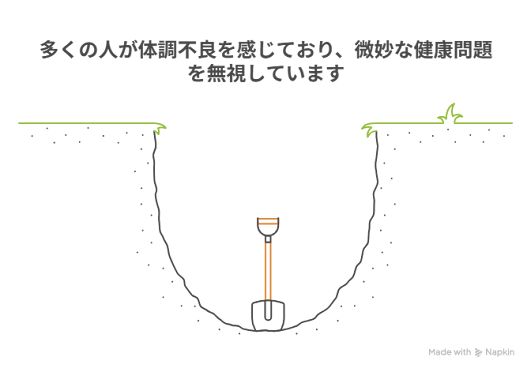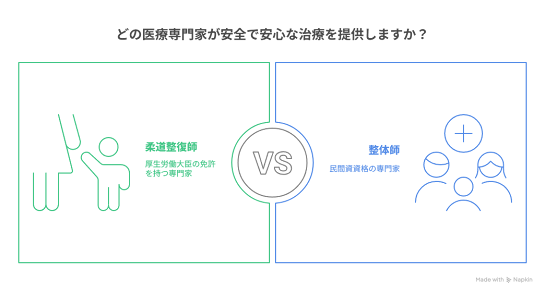今日からできる!体質改善の第一歩は「食」から~あなたの体質に合わせた「薬膳」とは?~
今日からできる!体質改善の第一歩は「食」から~あなたの体質に合わせた「薬膳」とは?~
「なんだか最近、疲れやすい」「冷えが気になるけれど、どうしたらいいかわからない」「健康診断は異常なしなのに、なんとなく調子が悪い…」。そんな風に感じている方はいませんか?
現代医学では「異常なし」と診断されても、体には小さな不調のサインが現れていることがあります。東洋医学では、このような状態を**「未病(みびょう)」**と呼び、病気になる前の段階で体の声に耳を傾け、適切なケアをすることが非常に大切だと考えられています。
そして、そのケアの第一歩として、今日からすぐに始められるのが**「食」**です。
2000年前から続く「医食同源」の知恵
東洋医学には、**「医食同源」**という言葉があります。これは「病気を治す医療も、日々の食事も、源は同じである」という考え方で、まさに「食べることは医療であり、学問でもある」という深い意味が込められています。
私たちは日々、自然の恵みを食べ物として体に取り入れていますが、東洋医学では、食の不摂生が病気の原因になると考えられてきました。反対に、食を通じて心身のバランスを整えることで、病気を未然に防ぐ「予防医学」としての役割も「食」が担っているのです。
この「医食同源」の考え方は、近年注目されている「スローフード」や「地産地消」、「LOHAS」といった、自然との調和や健康を志向するライフスタイルにも通じています。
薬膳の基本は「あなたの体質」に合わせた「攻めのレシピ」
「薬膳」と聞くと、特別な食材や難しい調理法を想像するかもしれません。しかし、薬膳の基本は、スーパーで手に入る身近な食材を活用し、「あなた自身の体質」に合わせた食事で、体の「弱点」を補っていくことにあります。
東洋医学では、生まれつき100%完璧なバランスの人間はいないと考えられています。誰もが、体質として何らかの「弱点」や、病気に傾きやすい傾向を持っているのです。薬膳は、この個人の「弱点」を見極め、それを補うために、あえて栄養バランスが均一な食事ではなく、**特定の作用を持つ食材を意図的に増やす「アンバランスなレシピ」**で体質改善を目指します。
例えば、あなたの体質はどちらのタイプに当てはまりますか?
-
暑がりタイプ(陰虚:いんきょ)
- 汗をかきやすい、手のひらや足の裏にほてりを感じる。
- 体に余分な熱が溜まりやすい体質です。
- ヒント: 体を冷ます作用のある食材(例:キュウリやナスなど熱帯地方で採れる野菜、果物)を意識して摂りましょう。アルコールや肉類、ニンニクなど体を温める作用の強いものは、過熱状態をさらに悪化させる可能性があるため、摂りすぎに注意が必要です。
-
寒がりタイプ(陽虚:ようきょ)
- 腰や手足が冷えやすい、顔色が青白い。
- 体を温めるエネルギー(陽気)が不足している体質です。
- ヒント: 体を冷やす冷たい飲み物やアイスクリームは避け、できるだけ温かい食べ物を中心に摂ることを心がけましょう。生姜やニンニクなど体を温める作用のある食材を取り入れるのがおすすめです。
今日からできる具体的な食養生例:
- 朝の冷たい水はNG! 東洋医学では、朝は体を温めて活動しやすくすることが大切とされています。冷たい水はこれを妨げるため、代わりに**白湯(さゆ)**を飲むことをおすすめします。
- 徹夜明けは「陰」を補う:徹夜をすると、体は陰のエネルギーが不足し、相対的に陽のエネルギーが強くなります。ハイな気分になるのはこのためです。徹夜明けには、体を潤し、熱を冷ます陰の食材(例:豚肉、ナス、もやし)を意識して摂りましょう。
- お酒とつまみの陰陽バランス:アルコールは体を温める「陽」の性質を持っています。陽の食材(肉類やニンニク)ばかりを組み合わせると「陽×陽=アンバランス」になります。ビール(陰)と焼きナス(陽)のように、陰陽のバランスを意識した組み合わせがおすすめです。
「からだの声」を食で感じてみよう
東洋医学では、体全体のバランスを「気の流れ」として捉えます。体のどこかでバランスが崩れると、それは「信号」として様々な形で現れます。熱や痛みだけでなく、表情、舌の色や形、舌苔の状態、声、脈、お腹の状態、肌の状態、ツボの反応など、様々な部分を通じて「声なき声」が発信されています。
薬膳を実践する中で、「なんとなく体調が良くなった」「疲れにくくなった」「二日酔いをしなくなった」といった体の変化を感じることができれば、それがまさに「からだの声」を聴き取れた瞬間であり、薬膳の仕組みを体験できた瞬間です。
より本格的に体質改善を目指したい方や、病後の体力回復を考えている方は、東洋医学や食養生の専門家に相談し、あなたの体質や現在の状態に最適なレシピを選択されることをお勧めします。
日々の食卓から、あなたの体と向き合う「薬膳」を始めてみませんか。きっと、心地よい体の変化を感じられるはずです。
Starting Today! The First Step Toward Improving Your Constitution Begins with Food – What Is “Medicinal Cuisine” Personalized to Your Body Type?
Do you sometimes feel, “Lately, I get tired easily,” “I’m concerned about feeling cold, but I don’t know what to do,” or “Even though my health checkup shows nothing abnormal, I just don’t feel quite right...”?
Even when modern medicine doesn’t find any abnormalities, subtle signs of discomfort may be manifesting in your body. Oriental medicine refers to this as **“Mibyo” (premorbid condition)**, emphasizing the importance of listening to your body’s signals and caring for yourself before illness develops.
As a first step toward such care, the action you can take starting today is **“food”**.
**Wisdom of “Food as Medicine” That Has Been Passed Down for Over 2000 Years**
In traditional Oriental medicine, there is the concept of **“Ishoku-Dogen”** (“Medicine and food originate from the same source”). This means that “medical treatment and daily diet share the same fundamental principles,” implying that “eating well is a form of medicine and a scholarly art.”
We consume the gifts of nature daily through food, but in Oriental medicine, poor dietary habits are thought to be potential causes of illness. Conversely, through proper nutrition, you can regulate your mental and physical balance and prevent diseases—a role that “food” can play as “preventive medicine.”
This concept of “Ishoku-Dogen” aligns well with the modern lifestyles that emphasize harmony with nature and health-conscious choices, such as slow food, local sourcing, and LOHAS.
**The Basic Principle of Medicinal Cuisine Is to Tailor Recipes to Your Body Type**
When hearing “medicinal cuisine,” you might imagine special ingredients or complicated cooking methods. However, the core idea of medicinal cuisine is to use everyday ingredients that are easy to obtain and to create meals tailored to your specific constitution, helping to address your body’s “weak points.”
In Oriental medicine, nobody has a perfectly balanced constitution from birth; everyone has some vulnerabilities or tendencies toward certain illnesses. Medicinal cuisine involves identifying these individual “weak points” and compensating for them by intentionally increasing foods with specific properties—sometimes creating “imbalanced” recipes that focus on targeted effects rather than uniform nutritional balance.
For example, which of these two types do you think you belong to?
**If you tend to feel hot and sweaty easily, with hot palms or soles (Yin deficiency / Yin-Kyo):**
- Your body tends to accumulate excess heat.
- **Tips:** Focus on consuming foods that cool the body, such as cucumbers, eggplants, or tropical fruits. Be cautious about overeating warming foods like alcohol, meats, and garlic, which can exacerbate heat symptoms.
**If you tend to feel cold in the lower back, hands, or feet, and look pale (Yang deficiency / Yoki):**
- Your body lacks sufficient warming energy (Yang Qi).
- **Tips:** Avoid cold drinks and ice cream; instead, prioritize warm foods. Incorporate warming ingredients like ginger and garlic into your meals.
**Practical Food Therapy Tips You Can Start Today:**
- **Skip Cold Water in the Morning:** Oriental medicine recommends warming the body from the start of the day. Drinking cold water can hinder this process, so drink **hot water or warm tea (sayu)** instead.
- **After an All-Nighter:** Sleep deprivation depletes Yin energy and makes Yang energy comparatively stronger, often causing an energized feeling. To recover, focus on consuming Yin-nourishing foods—such as pork, eggplants, and bean sprouts—that hydrate and cool the body.
- **Balancing Alcohol and Snacks:** Alcohol has a warming (“Yang”) property. Combining too many Yang foods (like meats and garlic) with alcohol can create imbalance (“Yang × Yang”). Instead, aim for balanced pairings, such as beer (Yin) with grilled eggplant (Yang), to maintain harmony.
**Listen to Your Body’s “Voice” Through Food**
In Oriental medicine, the body’s overall balance is viewed as a flow of “Qi” (vital energy). When this flow is disrupted, it manifests as signals such as heat, pain, facial expressions, tongue color and coating, voice, pulse, abdominal condition, skin health, or reflex points. These signs are the *silent voices* of your body communicating its needs.
As you practice medicinal cuisine, you may notice subtle improvements like feeling less fatigued, recovering faster from hangovers, or feeling healthier overall. These experiences indicate that you are attuning to your body’s “voice” and physically sensing the effects of this dietary approach.
For those seeking more thorough body constitution improvement or recovery after illness, consulting with traditional medicine or nutritional experts can help you identify the most suitable recipes tailored to your current state and constitution.
Why not start incorporating medicinal cuisine into your daily meals? You may be surprised by the pleasant, gradual changes in how your body feels.




コメント
コメントを投稿